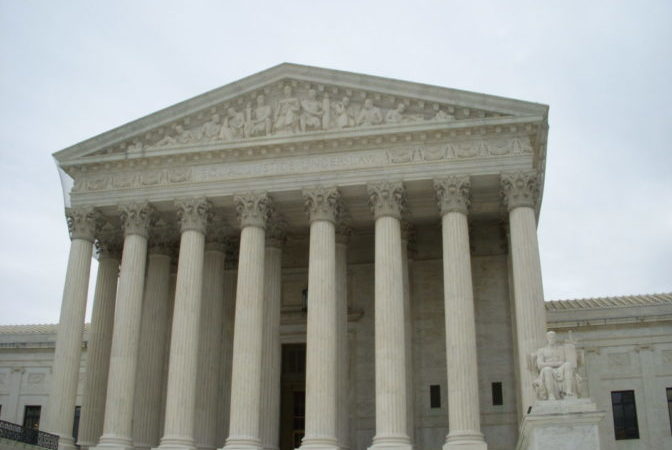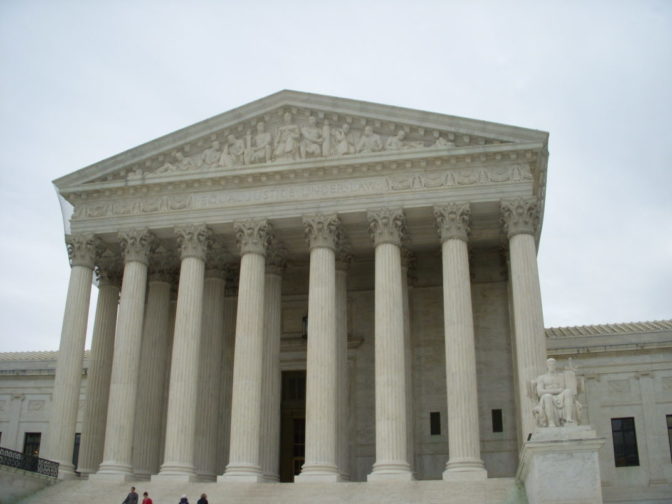The United States Supreme Court announced on Friday, June 28, that it intends to hear Espinoza v. Montana Department of Revenue, a case which seeks to answer whether a state’s decision to terminate “a generally available and religiously neutral student-aid program simply because the program affords students the choice of attending religious schools” constitutes a violation of the Religion clauses or the Equal Protection clause of the U.S. Constitution.
Kendra Espinoza, Jeri Anderson, and Jaime Schaefer, the three petitioners in the case, are all Montana mothers who transferred their kids into a nondenominational Christian private school for chiefly academic reasosn but had hoped that funds made available through the state’s Big Sky Scholarships would help alleviate the financial challenge of high quality private education. The scholarships were funded by private donors who would receive a modest tax credit as authorized by the Montana Tax Credit Scholarship Program created by the state’s legislature in 2015. As defined in statute, scholarship recipients were permitted to use allotted funds at virtually every private school in the state.
The current legal case stems from a decision by the Montana Department of Revenue which elected to not implement the program as designed and instead created an administrative rule that barred scholarship recipients from using their grants at religious schools. In designing the rule, the Department cited the state’s “Blaine Amendment,” which, contained in Section 6, Article X of the state’s constitution, prohibits the direct or indirect use of public funds for “aid [to] any church, school, academy, seminary, college, university, or other literary or scientific institution, controlled in whole or in part by any church, sect or denomination.” Later, the Montana Supreme Court upheld the Department rule, and in fact went further, ordering the scholarships to terminate altogether because it could identify no mechanism within the program that could be used to delineate “where the secular purpose ends and the sectarian begins.”
The petitioners in Espinoza v. Montana Department of Revenue are challenging the rule in question as unnecessary, unconstitutional, and as going beyond the delineated powers of the Department. Concerning the latter, they claim that the Department of Revenue regulation runs counter to the legislative intent of the Scholarship Program, which sought to extent scholarship funds to all private schools in the state. Secondly, they contend that Montana’s Blaine clause should not have even been invoked in the program’s case, given that it applied “only to public funds, and not private donations incentivized by tax credits.” Finally, they argue that even if the law in question did require religious schools to be excluded from the scholarship program, it would in effect violate the Religion and Equal Protection Clauses of the U.S. Constitution.
The forthcoming ruling in the Montana case stands to figure prominently in both the realms of religious liberty and educational choice. Moreover, the case—and especially a potential ruling favorable to the plaintiffs—could continue the Court’s recent trend of slowly chipping away at the provisions of state-level Blaine clauses, a trend which includes the 2017 7-2 ruling in the case of Trinity Lutheran v. Comer, which the Montana Supreme Court did not even cite in its ruling. Notably, Trinity Lutheran was decided on narrow grounds and did not resolve the question of “whether the government may bar religious options from otherwise neutral and generally available student-aid programs;” the case of Colorado’s Douglas County Choice Scholarship Program stood to potentially address this matter and to thus further clarify the constitutionality of Blaine-related provisions. Following its Trinity Lutheran ruling, the U.S. Supreme Court issued a GVR order and instructed the Colorado court to reexamine its original decision (unfavorable to the Program) in light of the new federal precedent, but because the new Douglas County board voted to terminate the choice program in 2017 the Colorado Supreme Court did not issue a new ruling.









